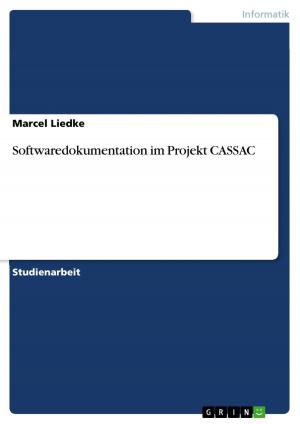Unmanned Aerial Vehicles (UAVs) in combat
Examining the controversy related to the use of UAVs with particular focus drawn on the moral implications within the contexts of harm, agency and regulation.
Nonfiction, Social & Cultural Studies, Political Science, International, International Security| Author: | William Kealey | ISBN: | 9783656588078 |
| Publisher: | GRIN Verlag | Publication: | February 4, 2014 |
| Imprint: | GRIN Verlag | Language: | English |
| Author: | William Kealey |
| ISBN: | 9783656588078 |
| Publisher: | GRIN Verlag |
| Publication: | February 4, 2014 |
| Imprint: | GRIN Verlag |
| Language: | English |
Professorial Dissertation from the year 2012 in the subject Politics - International Politics - Topic: Peace and Conflict Studies, Security, grade: 78, University of Lincoln, language: English, abstract: The increasing use of unmanned aerial vehicles (UAVs) has proven to be a catalyst for contentious dialogue (Valavanis et al: 2008; 3) between those whom acknowledge the suggested advantages of deploying UAVs and those who disagree on the basis that there are unjustifiable moral implications, especially in the context of warfare (Boyle. M :2013; 21). I remain impartial with regard to these arguments, however full justification shall be provided in due course as to why. This paper therefore, shall be written from the perspective of my own. To accurately evaluate these contrasting arguments we must first identify the meaning of morality in the context of warfare. Devlin. P (1965) acknowledges that definitively stating the confines of morality remains a hugely subjective issue, and so for simplicity, one broadly suited definition shall be accepted throughout the scope of this work. I believe Meisels. T's (2012: 932) notion whereby the laws of warfare, such as those presented in the Geneva conventions and the theory of 'just war'; which establishes humane 'rules' of conducting warfare, are inextricably linked with the notion of preserving morality during war. This perception on morality will therefore provide the parameters for the entirety of this essay to be argued from, and so whether warfare is 'moral' or not shall be decided by the extent to which war conforms with both the Geneva conventions and more importantly the theory of just war.
Professorial Dissertation from the year 2012 in the subject Politics - International Politics - Topic: Peace and Conflict Studies, Security, grade: 78, University of Lincoln, language: English, abstract: The increasing use of unmanned aerial vehicles (UAVs) has proven to be a catalyst for contentious dialogue (Valavanis et al: 2008; 3) between those whom acknowledge the suggested advantages of deploying UAVs and those who disagree on the basis that there are unjustifiable moral implications, especially in the context of warfare (Boyle. M :2013; 21). I remain impartial with regard to these arguments, however full justification shall be provided in due course as to why. This paper therefore, shall be written from the perspective of my own. To accurately evaluate these contrasting arguments we must first identify the meaning of morality in the context of warfare. Devlin. P (1965) acknowledges that definitively stating the confines of morality remains a hugely subjective issue, and so for simplicity, one broadly suited definition shall be accepted throughout the scope of this work. I believe Meisels. T's (2012: 932) notion whereby the laws of warfare, such as those presented in the Geneva conventions and the theory of 'just war'; which establishes humane 'rules' of conducting warfare, are inextricably linked with the notion of preserving morality during war. This perception on morality will therefore provide the parameters for the entirety of this essay to be argued from, and so whether warfare is 'moral' or not shall be decided by the extent to which war conforms with both the Geneva conventions and more importantly the theory of just war.















